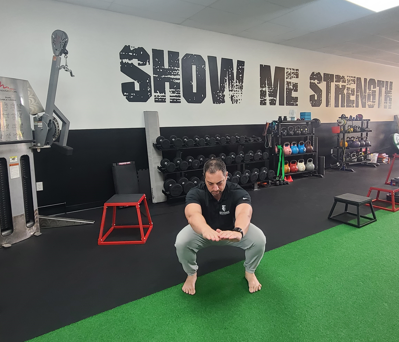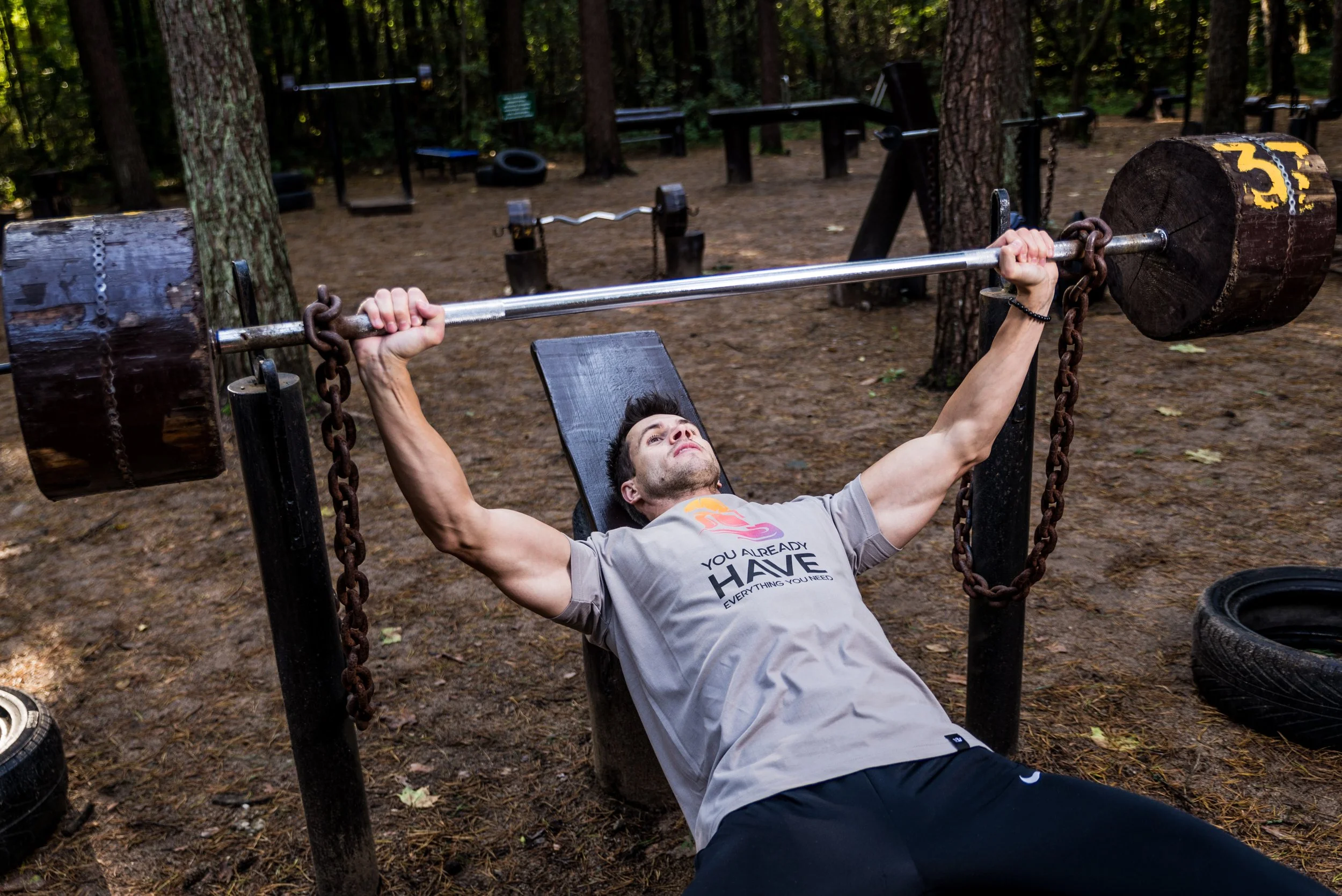It’s all too common to hear something like “I overdid it, I need to rest it” for musculoskeletal injuries. It is widespread advice in the medical community, and I have a problem with it. It doesn’t work; well if you want to maintain a functional life.
Read MoreThe shoulder is inherently the most unstable joint in the body, well at least for the major joints. This is because you sacrifice stability for mobility. In other words, we have to do a lot of things with our shoulders like reach overhead and behind the back, feed ourselves, dress, groom, etc. If something is very stable, it doesn’t move much. The anatomy of the shoulder is such that it lends to much greater mobility, and much less stability.
Read MoreAs Pickleball has grown in popularity, one question that we get a lot is “what stretches should I do before I play”? The first thing we tell our athletes is “think active, not passive”.
Read MoreAnkylosing spondylitis is a chronic systemic inflammatory condition that primarily affects the spine and sometimes extends to other joints. It can lead to fusion of the vertebrae. It’s thought to be an autoimmune disease which means there may be dietary changes that can positively affect it. Because it is systemic, it can affect other parts of the body, such as the heart and lungs. It can even affect the uvea which is a layer of the eye. This can turn into uveitis which is pain and redness of the eye, and sometimes blurred vision.
Read MoreDe Quervain’s tenosynovitis is a painful condition that affects the wrist and thumb. It is classically considered an overuse injury and has many names such as gamer’s thumb, texting thumb, and mommy thumb. It has also been correlated with autoimmune diseases such as rheumatoid arthritis, so perhaps there is a nutritional component. Repetitive housework may contribute such as chopping vegetables, cleaning dishes, vacuuming, and gardening/weeding. It’s also suggested that use of a computer mouse, using a trackball, typing, golf, bowling, fly-fishing, sewing, and piano playing may be the cause.
Read MoreIodine Deficiency is an extremely common problem and the effects can be hidden. Iodine is an essential for life and is important for the synthesis of thyroid hormones. Deficiency can lead to hypothyroidism, goiters, and some lesser known problems. Some food sources can inhibit iodine absorption and are termed “goitrogenic”.
Read MoreFrozen shoulder (adhesive capsulitis) and Dupuytren’s contracture share a similar pathology. Inflammation leads to changes in the connective tissue and it ends up severely limiting range of motion. Is there a link between the two? Both have been associated with endocrine disorders such as Hashimoto’s thyroiditis and diabetes (Cakir et al., 2003).
Read MoreHockey goalies love getting their legs into awkward positions, and the RVH (reverse vertical horizontal) is no exception. The difficulty with the position is that it puts the hip into internal rotation, a motion that many athletes are lacking.
Read MoreAutoimmune disease is a condition where the body’s own immune system attacks its own tissues. The types of tissues that are attacked determines the type of autoimmune disease that develops. There are hundreds of versions of autoimmune disease including type 1 diabetes, rheumatoid arthritis, graves disease, hashimoto’s disease, lupus, multiple sclerosis, crohn’s disease, celiac disease, inflammatory bowel disease, psoriasis and the list goes on and on.
Read MoreHave low back pain when squatting? There can be several reasons for this, but the first thing I check is your ankles. Limited ankle range of motion can alter how you squat and change your center of gravity, placing more strain on your low back.
Read MoreIf you’ve seen marathon runners collapse, it’s because of hyponatremia. Hyponatremia is a state where the concentration of salt in the body is abnormally low. Most are familiar with dehydration and it’s likely more common, however hyponatremia is not talked about quite as much and can be deadly. As discussed in this article, it can cause confusion, nausea, headache, and swelling of the brain which can lead to death if severe enough. Another problem that it has been linked to is osteoporosis.
Read MoreI get a lot of questions about what to do before playing a sport. I rarely get asked about what to do afterwards, which is equally as important. We seem to have forgotten the recovery aspect of using the body. I guess this is not surprising as we are a culture of go, go, go. Coffee, workouts on lunch breaks, more coffee. Constant stimulus. Remember, the body is always seeking homeostasis (equilibrium). When it gets tipped off the scale too often, we get break down. This is where injury occurs. If you want to improve performance, you do want to apply the right amount of stimulus, but then you must allow for recovery to keep injury at bay and to excel. This is called the hormetic effect. So let’s dig into how to approach this.
Read MoreThere are a number of reasons why you may have difficulty achieving a deep squat. Usually it’s your ankles. If you feel like you are going to fall backwards during a squat, it’s your ankles. However, if you feel strain in your groin or inner thigh, it may be your adductors.
Do you get pain in the front of the shoulder with bench press or push ups? The front of the shoulder is a sensitive area and has a lot of nerves that pass through this area. If the head of your humerus presses forward into this bundle, it can cause some pretty nasty pain. What causes this to happen? Lack of shoulder extension.
Read MoreFor years, we’ve been told to avoid salt as it increases blood pressure. There is more to the story than that. After all, there is what is known as “salt sensitive hypertensives”. So why do some people seem to be sensitive to salt, and others are not? Whenever this pattern arises, there is some more digging to be done. Perhaps the link is sugar.
Read MoreAnyone who has experienced a migraine can tell you just how horrific they can be. In high school, I used to get them and it felt like someone was dropping acid on my brain. I would have to lock myself in a room with the shades drawn and suffer through it, often to the point of vomiting. While there are many triggers to migraines, there are some easy dietary changes you can try that may influence it.
Read MoreWe were told it’s all about the right shoes. We were told shoes should give us more stability and have an arch. This was not based on science and has potentially led to harming our feet. Plantar fasciitis is a debilitating, knife-in-the-foot kind of pain. Instead of getting into the right shoes, maybe it’s getting out of the wrong shoes. As you’ll see, the approach to treating plantar fasciitis has been very wrong.
Read MoreA baker’s cyst, or popliteal cyst, is a collection of fluid behind the knee. It is benign, and often asymptomatic. If it gets severe enough, it can cause pressure on the local nerves and vasculature which will provoke pain and stiffness in the knee. It will usually be difficult to fully flex the knee.
Well it’s fantasy football season for me, which means I have my eye on the injury list. Some players get the unfortunate label of being “injury prone” which got me thinking. Is there such a thing? Does it depend on the position, how good the defense is, or is there something going on with the athlete? Is it a strength deficiency, movement error, or dumb luck?
Benign paroxysmal positional vertigo, or BPPV for short, is a debilitating condition that causes severe room-spinning dizziness with changes of head position. If you’ve heard of ‘crystals being loose in the ear’, this is BPPV. It is usually called ‘idiopathic BPPV’, which simply means we don’t know the cause. Head trauma can cause it, but for many patients that deal with this, they haven’t had any trauma. Some recent research has proposed that there is likely a dietary component of this condition in the form of changes in carbohydrate metabolism.
Read More



















